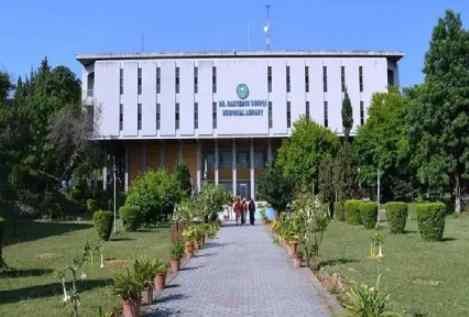Facing a worsening financial crunch that has brought operations to the brink, Quaid-i-Azam University (QAU) has been granted a Rs2 billion emergency bailout by the federal government—a move aimed at stabilizing one of Pakistan’s most prestigious public institutions, but not without conditions.
The Economic Coordination Committee (ECC), chaired by Finance Minister Muhammad Aurangzeb, approved the financial rescue package on Tuesday. The funds, however, are not a blank cheque. The university must now work closely with the Higher Education Commission (HEC) to chart out a detailed roadmap for long-term financial independence.
“The ECC approved the grant in principle, conditional on the development of a robust self-sustainability plan,” stated the finance ministry.
A University in Distress
The bailout comes after weeks of appeals from university staff and unions, who warned that QAU was fast approaching a shutdown. Salaries for June were delayed, July salaries remain unpaid, and pension disbursements for retired staff have stalled indefinitely. Even basic laboratory operations have been hit hard, with no money available to purchase essential chemical supplies.
The Joint Coordination Council (JCC), a coalition representing both teaching and non-teaching staff, had made a public plea last week, asking the federal government for urgent intervention.
“The university’s financial emergency has left it unable to sustain research, pay part-time lecturers, or even meet basic operational needs,” the JCC stated.
According to faculty members, the university has been struggling to stay afloat since 2023, largely due to frozen government funding since 2018—even as inflation has surged dramatically in that period.
Warning Signs Ignored for Too Long
Multiple internal bodies, including the Academic Staff Association (ASA), have repeatedly flagged the university’s dire situation. ASA noted that beyond unpaid salaries and pensions, core academic functions are suffering—jeopardizing QAU’s reputation as a top-tier institution in Pakistan.
The situation worsened in the current fiscal year, with the university needing a minimum of Rs2.5 billion to meet urgent obligations. Until this bailout, not a single rupee had been released from federal sources, crippling academic and research activity.
A 25% budget increase proposed by the HEC for QAU is still awaiting final approval, further compounding the financial uncertainty.
Conditional Support, Limited Patience
While the ECC acknowledged the university’s crisis, several members reportedly emphasized that repeated bailouts are not a viable solution.
“There’s a recognition that QAU deserves support—but there’s also an understanding that public finances can’t be stretched endlessly,” said a source familiar with the meeting. “The university must find a path to sustainable operations.”
The bailout has temporarily averted the immediate threat of mass staff protests. However, the JCC and Officers and Employees Association have warned that if pending salaries and budget allocations aren’t fully addressed, industrial action could still follow.
“Education must be treated as a national priority, not a budgetary afterthought,” the JCC emphasized in its appeal to the prime minister.
As QAU receives this much-needed financial injection, its long-term stability now hinges on whether it can implement structural reforms and reduce its dependency on ad-hoc government support. Without a sustainable financial model, this may only be a temporary reprieve.

